Top Abandoned Houses for Sale in the UK – How to Purchase
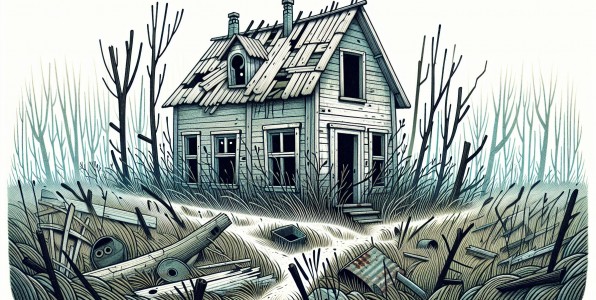
Top Abandoned Houses for Sale in the UK – How to Purchase
The post Top Abandoned Houses for Sale in the UK – How to Purchase appeared first on UK Construction Blog.
Curious about finding abandoned houses for sale? In this guide, we’ll explore where to find these unique opportunities, why they can be financially rewarding, and what steps you need to take to buy and renovate them.
Key Takeaways
- Abandoned houses vary in condition and can present unique restoration opportunities, often due to financial struggles, legal disputes, or local economic factors.
- Buying abandoned houses can be financially advantageous and contributes to community revitalization, as these properties are usually priced below market value.
- Effective strategies for locating abandoned homes include online real estate platforms, property auctions, and consulting estate agents, along with the vital steps of title searches and property assessments before purchase.
Understanding Abandoned Houses
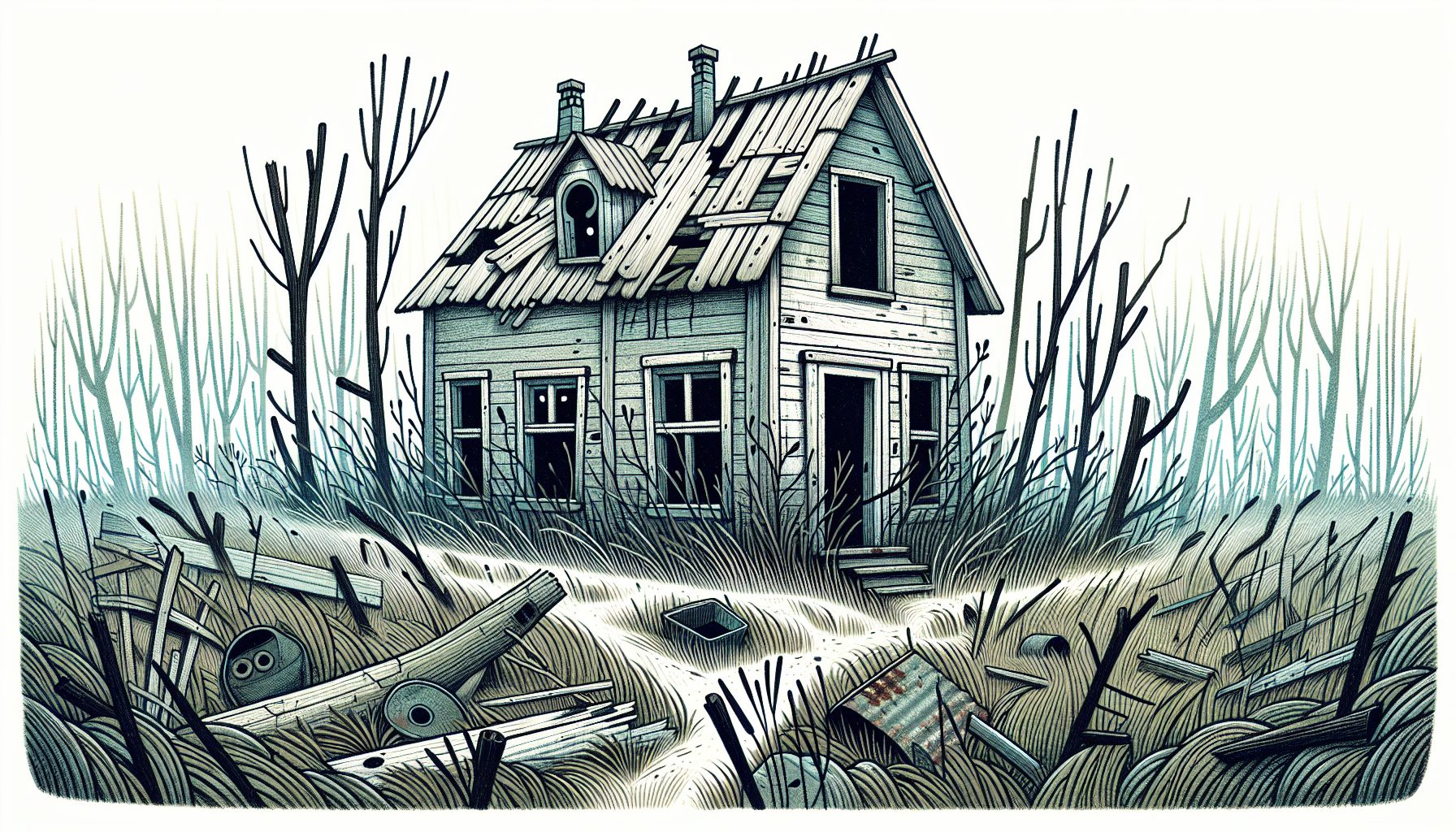
Abandoned houses can vary significantly in their state of disrepair. Some may be relatively well-preserved, requiring only minimal work to restore, while others might be severely neglected, presenting a multitude of challenges for potential buyers. Abandoned homes can present unique opportunities for those willing to invest in their restoration.
The reasons behind why properties become abandoned are varied and often complex. Here are some common causes:
- Financial difficulties, where owners may be unable to afford the necessary repairs and maintenance, leading them to leave their homes.
- Legal issues, such as inheritance disputes or unresolved ownership questions.
- External factors, such as local economic decline or rising property taxes, which can further contribute to homes being left empty.
Knowing these underlying causes helps potential buyers make informed decisions and set realistic renovation expectations.
Why Consider Buying an Abandoned House?
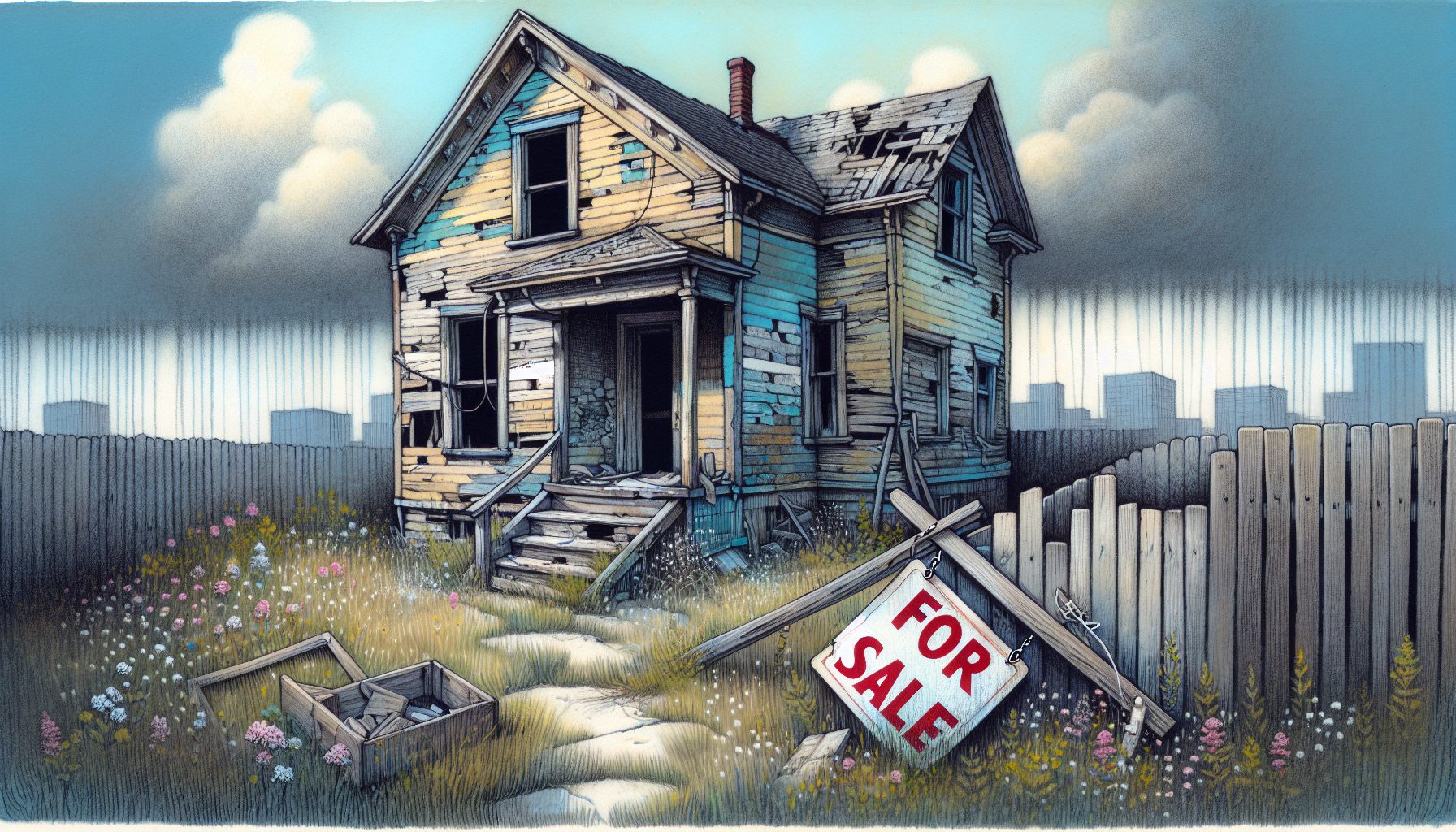
One of the most compelling reasons to consider buying an abandoned house is the financial advantage. Abandoned properties are often sold at significantly lower prices than their market value, making them an enticing option for buyers looking to secure a good deal.
The potential for transformation is another major appeal. These derelict properties offer a blank canvas for buyers to create their dream home. The process of renovating and revitalizing an abandoned house can turn it into a desirable living space, tailored to personal preferences and needs. Moreover, some estate agents specialize in distressed properties, providing insights into potential investments and renovation opportunities.
Beyond personal gain, purchasing and renovating abandoned properties can also address the housing shortage in the UK. By bringing empty homes back into use, buyers can contribute to revitalizing communities and providing much-needed housing solutions.
Where to Find Abandoned Houses for Sale
Finding abandoned houses for sale requires a bit of detective work, but there are several effective methods to uncover these hidden gems. From online real estate platforms to property auctions, there are multiple avenues to explore.
To make the search easier, we’ve broken down the most effective methods: online real estate platforms, government and local authority websites, property auctions, estate agents, and the technique known as “driving for dollars.�
Online Real Estate Platforms
Sites like Rightmove, Zoopla, and PrimeLocation are key resources for finding abandoned properties. They simplify the process by offering extensive listings that can be filtered by location, price, and property condition.
The variety of listings on these platforms helps buyers find properties that meet their investment goals. Regularly checking these sites keeps buyers updated on new listings and opportunities.
Government and Local Authority Websites
Government and local authority websites often list abandoned property, empty properties, or derelict properties. Exploring these listings can reveal viable options for buyers.
These periodically updated listings can offer insights into properties that may not be widely advertised.
Property Auctions
Property auctions in the UK are popular for buying abandoned properties. Auction houses like Pattinson Auction frequently feature derelict houses and properties from financial institutions in the uk property market.
Auctions often require a deposit on the day of sale. Conducting a thorough title search and property assessment before bidding is crucial. Auctions can offer competitive prices, but buyers should be ready for a fast-paced process.
Estate Agents
Estate agents are instrumental in locating abandoned houses. They offer access to unlisted properties and provide valuable market insights for informed purchasing decisions.
Agencies like Balfours LLP specialize in finding abandoned houses and can guide buyers through the process. Working with an estate agent increases the chances of finding a suitable property.
Driving for Dollars
‘Driving for dollars’ involves physically scouting neighborhoods for neglected, abandoned houses. Look for signs like overgrown lawns, boarded-up windows, and few parked cars.
Checking if the council tax band has been deleted can indicate ongoing tax payments without utility charges. Though time-consuming, this method can reveal hidden opportunities.
Steps to Purchasing an Abandoned House
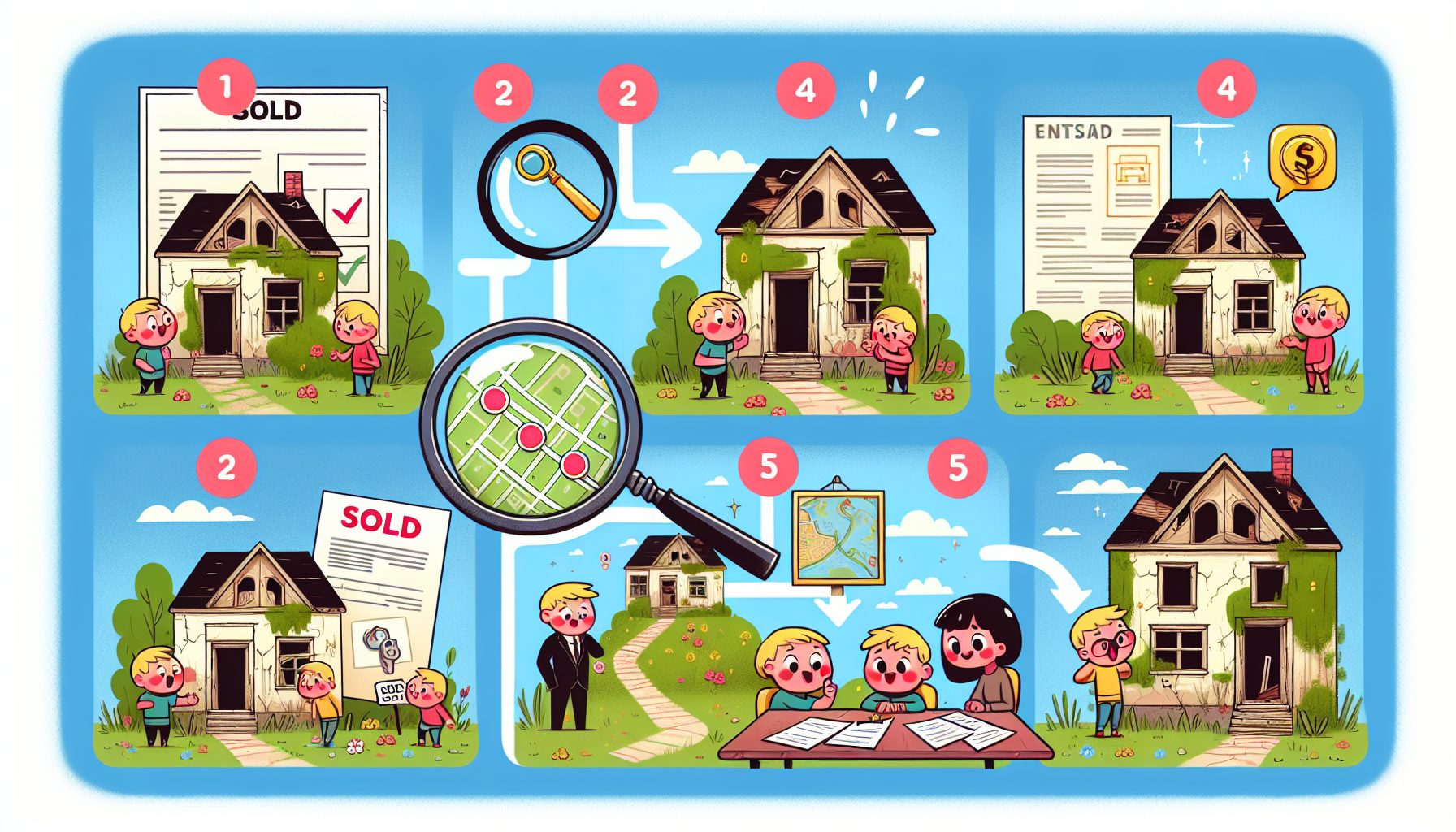
Buying an abandoned house involves key steps like verifying ownership and assessing property condition to ensure a successful purchase.
To help you through this process, we’ve detailed the key steps: conducting a title search, assessing property condition, estimating renovation costs, and securing financing.
Conducting a Title Search
A title search is vital for establishing clear ownership and avoiding legal disputes. Resources like the land registry and title documents are essential.
Skipping a thorough due diligence title search can lead to ownership disputes or outstanding claims. Professional advice and detailed surveys can mitigate these risks.
Assessing Property Condition
Assessing property condition is key for estimating renovation costs and determining investment feasibility. Signs like overgrown lawns and boarded-up windows indicate potential issues.
Structural concerns like subsidence, major roof or foundation issues, and significant damp can make a property unmortgageable. A thorough assessment clarifies the extent of required work and aids in planning the renovation.
Estimating Renovation Costs
Estimating renovation costs includes tasks like structural repairs, plumbing upgrades, and electrical overhauls. Unforeseen expenses may arise from structural damage or outdated systems. A contingency budget helps manage unexpected costs and keeps the project on track.
Securing Financing
Financing for purchasing and renovating abandoned properties can come from traditional mortgages, cash purchases, or specialized loans. Renovation loans combine property and renovation costs.
Bridging loans and refurbishment finance are effective for funding purchases and renovations. Access to necessary funds is crucial for maintaining structural integrity and project success.
Legal Considerations When Buying Abandoned Houses
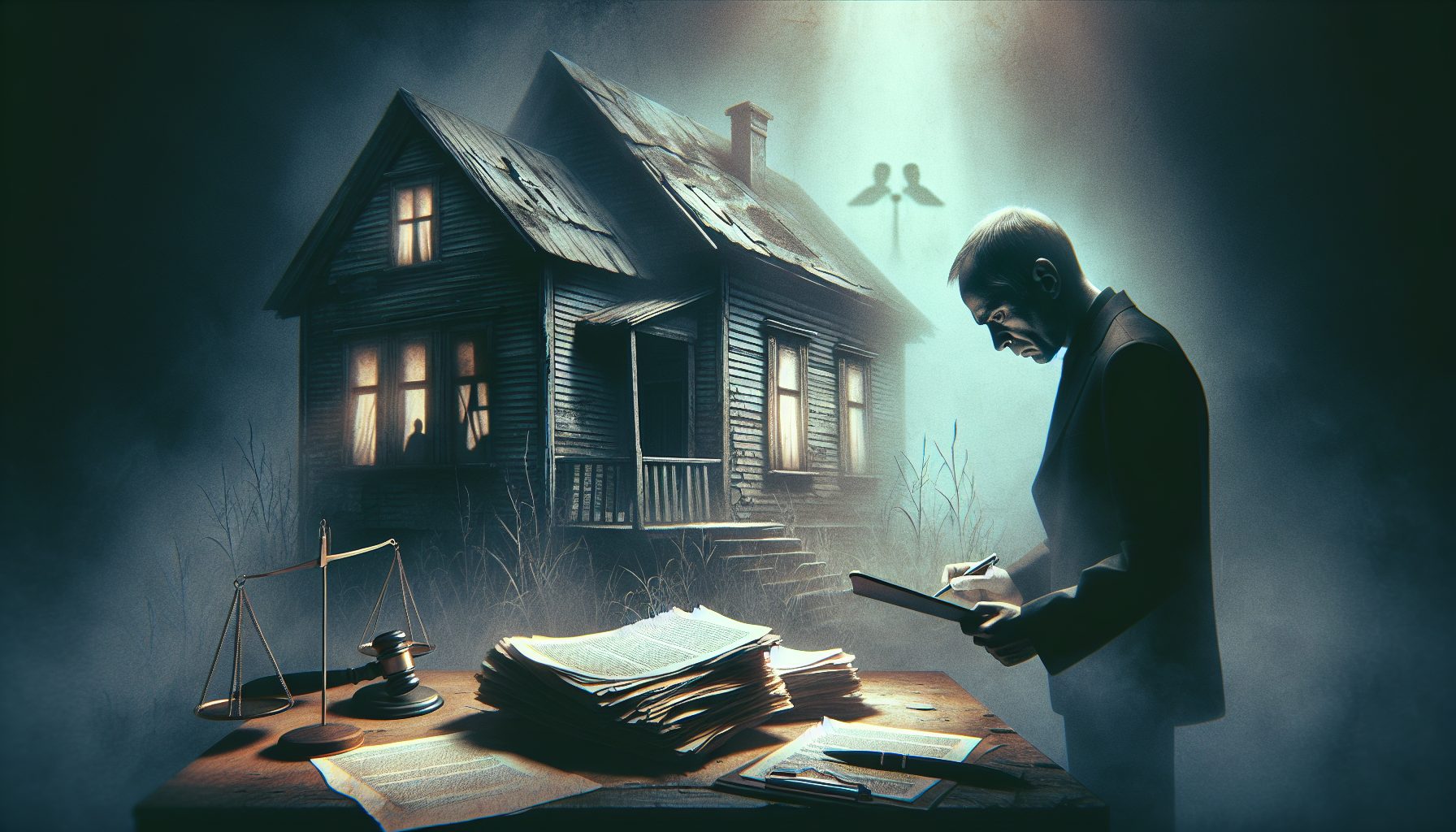
Buyers must understand legal issues when purchasing abandoned houses. Identify and resolve existing liens, and be aware that unpaid back taxes could become the buyer’s responsibility.
Planning restrictions and zoning laws can limit what can be done with the property, affecting renovation plans and overall feasibility.
Inheritance issues can cause properties to be abandoned when heirs are untraceable or disputes unresolved. The HM Land Registry provides details on most derelict properties, aiding in finding ownership information and navigating title complexities.
Planning and Executing the Renovation
A detailed renovation plan ensures all project aspects are covered and facilitates communication among contractors and stakeholders. Include a timeline, necessary permits, and a description of intended renovations.
Consulting with professionals helps create an effective renovation plan that guides the process and ensures compliance with building regulations. Renovation costs vary widely by property condition, location, and work extent, and should be clearly identified during planning.
Identifying potential hidden costs during renovation is essential to avoid budget overruns.
Creating a Renovation Plan
A solid renovation plan identifies necessary work and estimates costs, offering a chance to create a personalized living space.
A successful renovation blueprint includes timelines, budgets, and required permits, with achievable milestones.
Common Renovation Projects
Structural repairs ensure the stability and safety of abandoned houses. Plumbing work often involves repairing or replacing old pipes, fixing leaks, and updating the system to code.
Electrical work may include rewiring, updating panels, and installing new fixtures. Finishing touches like painting, flooring, and landscaping enhance the property’s appeal and functionality.
Managing Hidden Costs
Identifying repair needs involves assessing the property’s condition for immediate fixes. Common areas include the roof, plumbing, and electrical systems.
Estimating repair costs requires detailed research into material and labor averages. Set aside an emergency fund covering 10-20% of the renovation budget to manage unexpected costs.
Risks and Rewards of Buying Abandoned Houses

Empty homes in the UK make up about 3% of the total housing stock, highlighting the abandoned houses issue. Investing in these empty property homes can offer significant returns but also involves unique challenges and risks.
Legal challenges like unclear titles and outstanding liens are common when investing in these properties. Renovation costs can exceed purchase prices, especially in high-demand areas. Balancing risks and rewards is crucial for informed investment decisions.
Case Studies of Successful Renovations
The former Charles Street Jail in Boston was converted into The Liberty Hotel, preserving its historic architectural features while providing modern amenities. Bodmin Jail in Cornwall has also been transformed into a luxury hotel, retaining its historical elements.
Battersea Power Station in London reopened as a vibrant hub with shops, restaurants, and entertainment, following a £9 billion restoration. Dexamenes Seaside Hotel in Greece repurposed an abandoned wine factory, maintaining its industrial charm while creating a stylish hotel.
Baltic Flour Mill in Gateshead was converted into a contemporary art gallery, becoming a key part of the city’s cultural regeneration. These examples show how abandoned properties can be successfully renovated and repurposed, revealing unexpected treasures and high-quality materials hidden beneath layers of neglect.
Summary
Purchasing and renovating abandoned houses can be a rewarding venture, offering financial advantages and the opportunity to create a personalized living space. The process requires thorough due diligence, careful planning, and an understanding of the legal and financial complexities involved.
By following the steps outlined in this guide, potential buyers can make informed decisions and successfully navigate the challenges of buying abandoned properties. The transformation of derelict properties not only benefits the buyer but also contributes to revitalizing communities and addressing the housing shortage. The journey may be challenging, but the rewards of breathing new life into an abandoned house are well worth the effort.
Frequently Asked Questions
What are the common reasons for properties being abandoned?
Properties are commonly abandoned due to financial difficulties, legal issues, physical damage, and external factors like economic decline and rising taxes. Addressing these issues early can help prevent abandonment.
Why should I consider buying an abandoned house?
Buying an abandoned house can be financially advantageous due to their lower prices and offers a unique opportunity for transformation into a desirable property. Additionally, investing in such houses can contribute to alleviating the housing shortage.
Where can I find abandoned houses for sale?
Abandoned houses for sale can typically be found on online real estate platforms such as Rightmove and Zoopla, as well as through property auctions and local authority websites. Additionally, exploring neighborhoods may reveal neglected properties available for sale.
What are the steps to purchasing an abandoned house?
To purchase an abandoned house, it is crucial to conduct a title search, assess the property’s condition, estimate renovation costs, and secure financing. Following these steps will facilitate a successful acquisition and restoration of the property.
What are the risks and rewards of buying abandoned houses?
Buying abandoned houses can lead to significant financial gains and the fulfillment of restoring a property. However, be mindful of legal complications, hidden liens, and renovation costs that can greatly exceed initial budgets.
Comments are closed